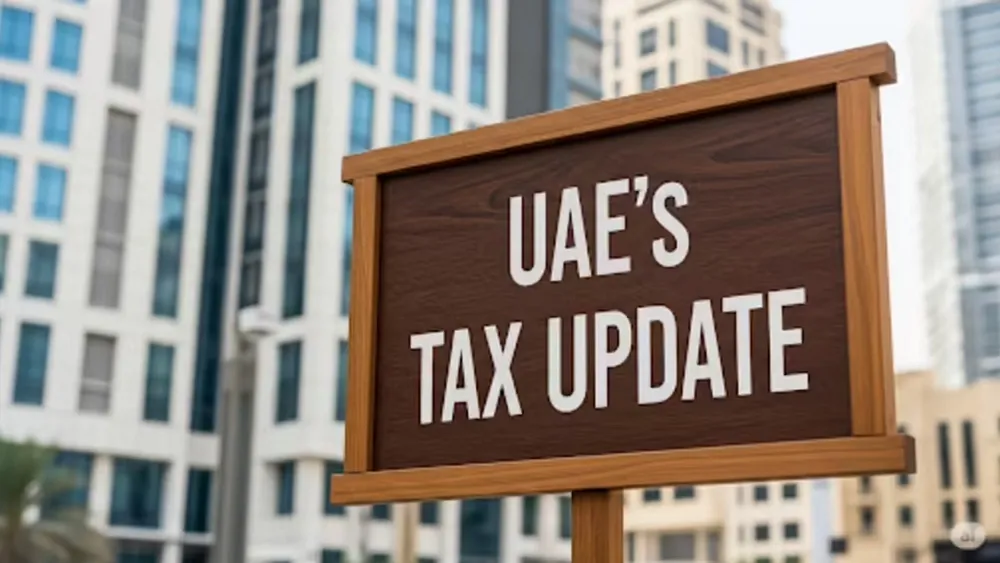Signature Collection
Explore SignatureThe UAE has taken a significant step forward in refining its corporate tax regime with the introduction of a 4% annual depreciation allowance on investment properties held at fair value. Effective from January 1, 2025, this change marks a milestone in aligning accounting practices with taxation, directly benefiting real estate and other capital-intensive sectors.
Let’s dive further into what this development means for the UAE real estate tax rules.
A Strategic Update for the Real Estate Sector
The new UAE property tax rule allows companies to claim tax depreciation of 4% per annum on the original cost of their investment properties.
For businesses that have traditionally followed the fair value model without being able to claim depreciation deductions, this decision resolves a long-standing challenge. By boosting compliance, flexibility, and investor confidence, the measure strengthens the foundation of property tax in the UAE.
Tax advisory firm Dhruva has welcomed the change, calling it a strategic opportunity for companies to realign their tax positions. Sandeep Kumar, Corporate Tax Partner at Dhruva, noted that this decision provides optionality for businesses while creating consistency in how properties are treated for tax purposes.
Key Provisions of the New Rule
Under the revised Dubai real estate tax rules, businesses can now:
- Elect for the realisation basis of taxation — a one-time, irrevocable choice.
- Claim depreciation at 4% annually on the original cost of the property, calculated on a pro-rata basis depending on the holding period.
- Benefit from continuity under Qualifying Group Relief (QGR), Business Restructuring Relief (BRR), and Tax Groups (TG) where properties are transferred.
Failure to elect the realisation basis means companies will permanently forfeit the right to claim depreciation on properties held at fair value. This highlights the importance of timely planning and accurate filing under the updated UAE real estate tax framework.
Impact on Businesses
The amendment goes beyond simple compliance. Since depreciation under the fair value model is not reflected in financial accounts, businesses may face temporary differences that result in deferred tax liabilities under international accounting standards. Companies must carefully evaluate the implications of electing the realisation basis, especially considering how it may impact other fair-valued assets and unrealised gains or losses.
According to Kumar, this is not just a compliance measure but a “strategic opportunity” for businesses. By aligning taxation with business realities, the new real estate tax rules in the UAE provide clarity, flexibility, and room for long-term tax planning.
What Does the New UAE Property Tax Mean for Investors?
For companies holding real estate at fair value, the updated real estate taxation UAE rules underscore the importance of early decision-making. The ability to claim depreciation helps reduce taxable income, improving overall profitability. At the same time, investor confidence is likely to rise as the market gains more consistency and transparency.
This move is also expected to strengthen Dubai’s position as a global real estate hub by ensuring that the UAE real estate tax policies remain competitive and aligned with international standards.
FAQs
From January 1, 2025, businesses can claim a 4% annual depreciation on investment properties held at fair value, based on the property’s original cost.
No. Companies must elect for the realisation basis of taxation. This is a one-time, irrevocable choice.
Failure to elect means the company will permanently lose the right to claim depreciation on properties held at fair value.
Since depreciation under the fair value model is not reflected in financial accounts, companies may face temporary differences and deferred tax liabilities.
The updated Dubai real estate tax rules improve compliance, investor confidence, and competitiveness, further strengthening Dubai’s position as a leading real estate market.
Businesses in the real estate and capital-intensive sectors stand to gain the most, particularly those holding properties at fair value.
For more information, get in touch with us at Provident
 Apartments
Apartments Villas
Villas Townhouses
Townhouses Penthouses
Penthouses Commercial
Commercial See All Properties
See All Properties Commercial
Commercial Property Management
Property Management List Your Property
List Your Property Mortgages
Mortgages Conveyancing
Conveyancing Short Term Rentals
Short Term Rentals Property Snagging
Property Snagging Partner Program
Partner Program Currency Exchange
Currency Exchange PRYPCO
PRYPCO Ethnovate
Ethnovate Plots
Plots
